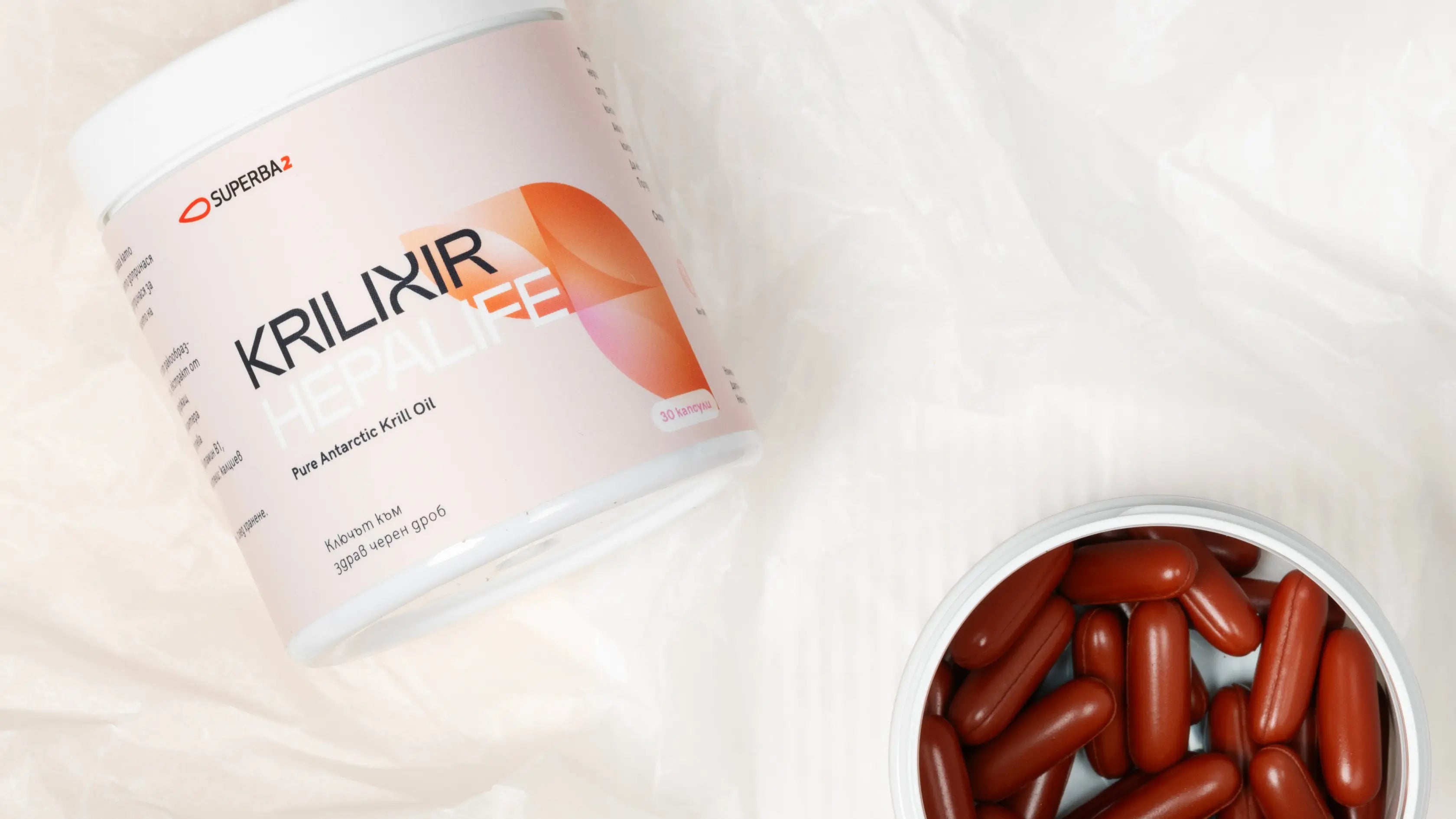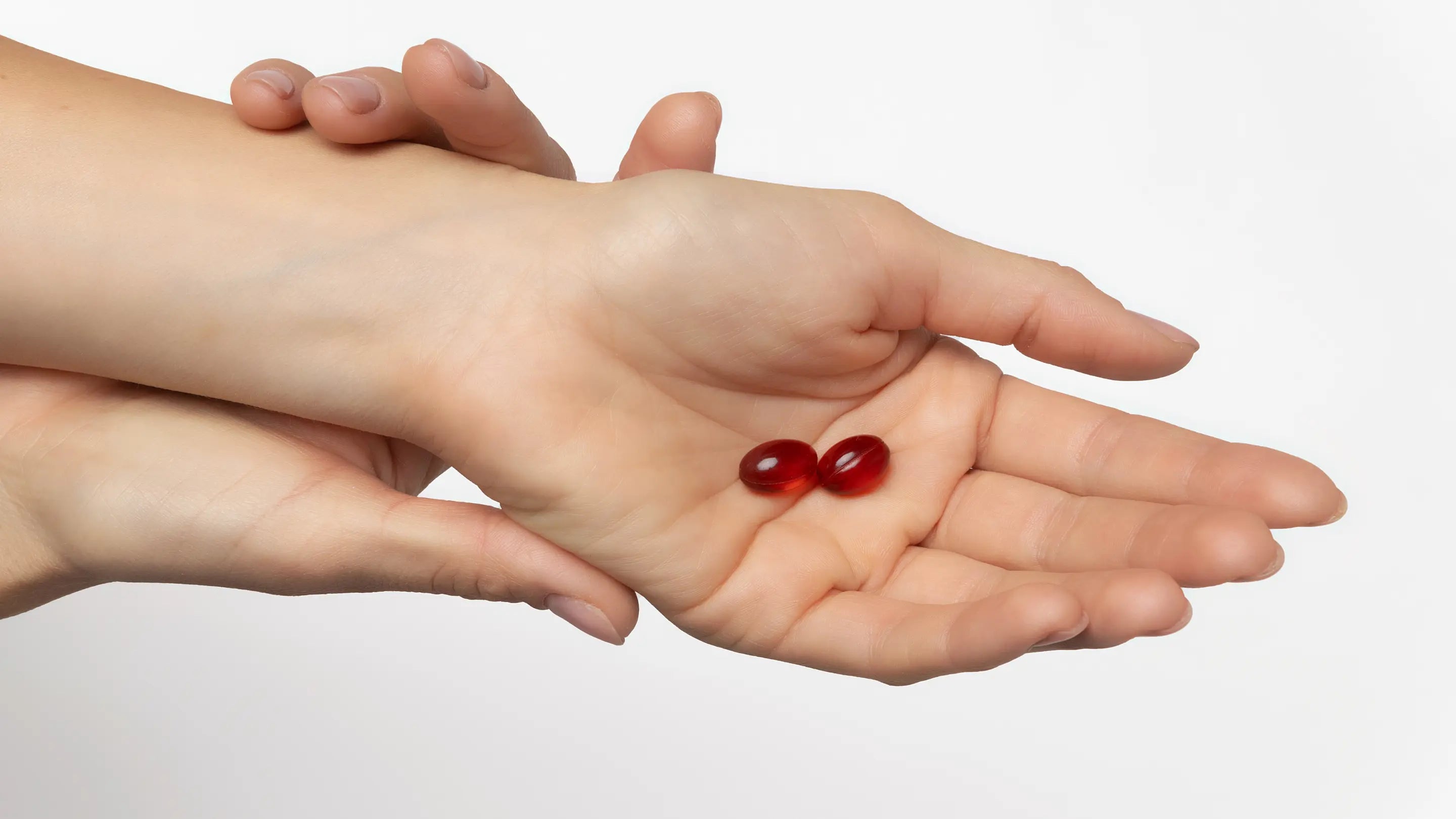Omega 3 Fatty Acids – Everything We Need to Know About Them?
Omega-3 fatty acids are essential polyunsaturated fats, vital for maintaining overall health, normal heart, brain, and eye function, as well as for reducing inflammation.
These fatty acids are mainly found in fish such as salmon, mackerel, and sardines, ocean shrimp-like creatures such as krill and in plant sources such as flaxseed, chia seeds, and walnuts.
The most effective way to take Omega-3 is through a balanced diet rich in these foods, supplements such as fish oil and krill oil capsules or algae, providing a convenient alternative, especially for those who do not consume enough Omega-3 rich foods. Integrating different sources of Omega-3 ensures optimal health benefits, making them a crucial component in nutrition and maintaining a healthy lifestyle. Krilixir is the brand on the Bulgarian market that offers the purest krill oil and is the best source precisely of such Omega-3 fatty acids.
What are Omega-3 fatty acids?
Omega-3 fatty acids are a group of essential polyunsaturated fats that are crucial for various bodily functions. There are ten main types of Omega-3 fatty acids, but the most notable and beneficial are eicosapentaenoic acid (EPA), docosahexaenoic acid (DHA), and alpha-linolenic acid (ALA).
Types of Omega-3 fatty acids:
There are 10 types of different Omega-3 fatty acids.
-
Alpha-linolenic acid (ALA):
It is found in plant sources such as flaxseeds, chia seeds, and walnuts. It primarily serves as a precursor to EPA and DHA, although the conversion rate in the human body is relatively low. Nevertheless, ALA is beneficial for cardiovascular health as it can reduce the risk of heart disease. Additionally, it has anti-inflammatory effects and can support overall metabolic health.
-
Eicosapentaenoic acid (EPA):
EPA is primarily found in marine sources such as fish, krill, and seaweed and is known for its anti-inflammatory properties, helping to reduce inflammation throughout the body, supporting heart health by lowering triglyceride levels, and potentially improving mental health by alleviating symptoms of depression.
-
Docosahexaenoic acid (DHA):
DHA is a major structural component of the brain, retina, and many other parts of the body. It plays a key role in brain development and function, making it essential for pregnant and breastfeeding women. DHA is also vital for maintaining healthy vision and may help slow the progression of age-related cognitive decline.
-
Stearidonic acid (SDA):
Intermediate product in the conversion of ALA to EPA, found in blackcurrant seed oil and hemp seed oil.
-
Eicosatetraenoic acid (ETA):
A lesser-known Omega-3 fatty acid found in fish oils and in krill oil.
-
Eicosatrienoic acid (ETE):
It is found in some types of fish oil.
-
Docosapentaenoic acid (DPA):
Present in fish oils, krill, and other marine species.
-
Hexadecatrienoic acid (HTA):
Found in some algae oils.
-
Nervonic acid:
Although it is more of a monounsaturated fatty acid, it has some properties related to Omega-3 fatty acids and is found in seed oils such as lunaria oil.
-
Tetracosapentaenoic acid:
It is found in some fish oils, although it is less known and studied compared to EPA and DHA.
These high-quality Omega-3 and nutritional supplements, containing them, contribute to overall health in a unique way, actively working through anti-inflammatory properties and supporting metabolic processes.
What are the benefits of Omega-3 fatty acids?
Up to this point, the general benefits of taking Omega-3 fatty acids have been listed. However, to get a clearer idea of their positive impact on human health and bodily functions, it is necessary to present a more detailed picture of the direct effect. Omega-3 fatty acids have a crucial role in the activity of the brain, heart, liver, vision, joints, mental health, metabolism, reproductive functions, and energy. The products from the Krilixir series, which are rich in Omega-3 fatty acids, have a specific focus and are tailored to different processes in the body. The benefits are:
- Good cardiovascular health:
Omega-3 fatty acids, especially EPA and DHA, help the heart by lowering triglyceride levels, reducing blood pressure, decreasing inflammation, improving endothelial function, and stabilizing heart rhythm, thereby reducing the risk of cardiovascular diseases, heart attacks, and strokes. Krilixir Cardio is the dietary supplement for a strong heart.
- Normal liver function:
EPA, DHA, ALA are among the Omega-3 fatty acids that protect the liver from inflammation and reduce the risk of non-alcoholic fatty liver disease (NAFLD). Krilixir Hepalife is among Krilixir's liver supplements that provide the best Omega-3.
- For strengthening the immune system:
Krilixir Shield is the product with Antarctic krill oil, through which EPA and DHA support the immune system by reducing inflammation, enhancing the function of immune cells such as macrophages and T-cells, and modulating cytokine production. They improve the overall immune response and resistance to infections.
- In case of vision problems:
EPA and DHA support eye health and vision. DHA is a key structural component of the retina, and the combination with EPA reduces inflammation and protects against age-related macular degeneration (AMD). The answer is Krilixir Vision.
-
Strong metabolism:
Alpha-linolenic acid (ALA) supports metabolism by converting into EPA and DHA in the body, which improves mitochondrial function and energy production. Additionally, ALA enhances insulin sensitivity, reduces inflammation, and maintains lipid metabolism, collectively contributing to a more efficient metabolic process. The solution on the Bulgarian market is Krilixir Fit.
Krilixir products provide Bulgarian consumers with pure krill oil and the best source of Omega-3 fatty acids. The benefits are widely recognized, and the place of Krilixir Krill Oil in every diet and healthy regimen is essential.
Conclusion
In conclusion, including products with krill oil in the diet is an effective and excellent method to ensure adequate intake of Omega-3 fatty acids. Unlike traditional fish oil, krill oil boasts higher bioavailability due to its phospholipid form, providing more efficient absorption and utilization of EPA and DHA.
Krill oil contains the antioxidant astaxanthin, which protects against oxidative stress and improves health. Studies show that krill oil not only supports cardiovascular health, cognitive function, and anti-inflammatory processes, but also outperforms fish oil in improving lipid profiles and reducing joint pain.
That is why, for people who want to optimize their Omega-3 intake, krill oil offers a compelling, holistic solution that addresses both health and environmental considerations. The products that are most suitable and provide the purest Antarctic krill oil in Bulgaria are those of the Krilixir brand.
FAQ:
1. Does Omega-3 cause weight gain?
Omega-3 fatty acids, when consumed in recommended amounts, are unlikely to cause weight gain.
2. What is the difference between Omega-3 and fish oil?
Omega-3 refers to essential fatty acids (ALA, EPA, DHA) vital for health, found in various sources. Fish oil is specifically extracted from fish and is rich in EPA and DHA, two important Omega-3s that provide direct benefits such as anti-inflammatory effects and cardiovascular support.
3. When should Omega-3 fatty acids be taken - in the morning or in the evening?
Omega-3 fatty acids can be taken at any time, but taking them with a meal containing fat may improve absorption. Some prefer the morning for a consistent routine, while others find evenings better to reduce potential digestive discomfort. The timing largely depends on personal preferences and tolerance.

























